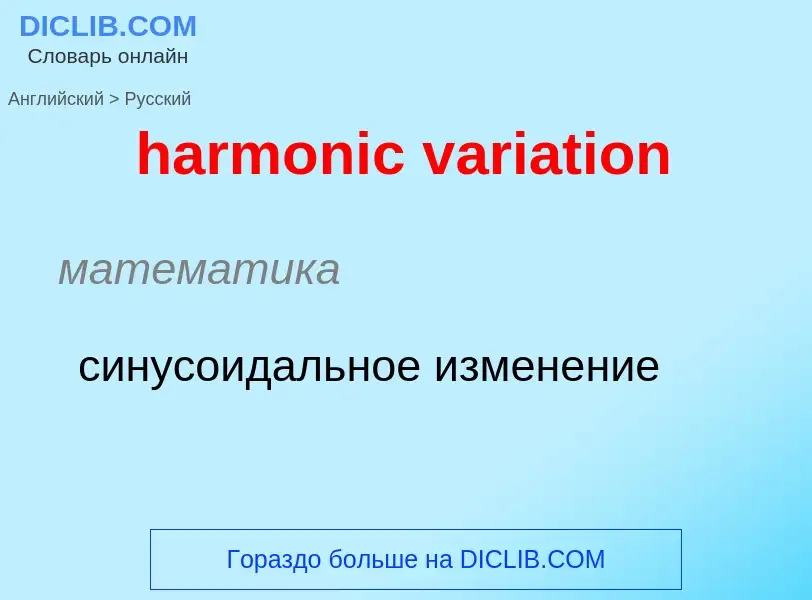Traduction et analyse de mots par intelligence artificielle ChatGPT
Sur cette page, vous pouvez obtenir une analyse détaillée d'un mot ou d'une phrase, réalisée à l'aide de la meilleure technologie d'intelligence artificielle à ce jour:
- comment le mot est utilisé
- fréquence d'utilisation
- il est utilisé plus souvent dans le discours oral ou écrit
- options de traduction de mots
- exemples d'utilisation (plusieurs phrases avec traduction)
- étymologie
harmonic variation - traduction vers russe
математика
синусоидальное изменение
[ve(ə)ri'eiʃ(ə)n]
общая лексика
вариация
изменчивость
изменение
вариационный
варьирование
колебание
колебательность
магнитное склонение
неравномерность
отклонение
разновидность
ход зависимости
нефтегазовая промышленность
отклонение (от номинальной величины)
Смотрите также
существительное
общая лексика
изменение
перемена
варьирование
колебание
разновидность
вариант
отклонение
изменение, перемена
склонение магнитной стрелки
специальный термин
вариация
физика
магнитное склонение
грамматика
флексия
биология
аберрация
генетическая изменчивость
мутация
Définition
Wikipédia
In mathematics, the n-th harmonic number is the sum of the reciprocals of the first n natural numbers:
Starting from n = 1, the sequence of harmonic numbers begins:
Harmonic numbers are related to the harmonic mean in that the n-th harmonic number is also n times the reciprocal of the harmonic mean of the first n positive integers.
Harmonic numbers have been studied since antiquity and are important in various branches of number theory. They are sometimes loosely termed harmonic series, are closely related to the Riemann zeta function, and appear in the expressions of various special functions.
The harmonic numbers roughly approximate the natural logarithm function: 143 and thus the associated harmonic series grows without limit, albeit slowly. In 1737, Leonhard Euler used the divergence of the harmonic series to provide a new proof of the infinity of prime numbers. His work was extended into the complex plane by Bernhard Riemann in 1859, leading directly to the celebrated Riemann hypothesis about the distribution of prime numbers.
When the value of a large quantity of items has a Zipf's law distribution, the total value of the n most-valuable items is proportional to the n-th harmonic number. This leads to a variety of surprising conclusions regarding the long tail and the theory of network value.
The Bertrand-Chebyshev theorem implies that, except for the case n = 1, the harmonic numbers are never integers.

